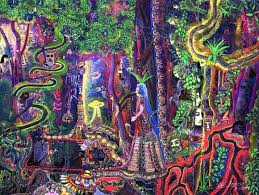
I arrived in Sweden for the first time in December of 2001. Within weeks, before I even had the chance to adjust my sleep schedule to the 11-hour time difference, the country was rocked by the murder of Fadime Sahindal. I didn’t understand it at the time, but this incident – and Swedes’ reaction to it – could explain the disaster that has now befallen the nation a generation later.
Sahindal was a Turkish refugee, and had moved to Sweden with her family at the age of seven. She was evidently a high-spirited woman because she refused to accede to her father’s demands that she abstain from dating any Swedish men. This refusal, to to horrified astonishment of the Swedish population, was enough to provoke her own father into shooting her in the head to absolve the perceived shame Fadime had brought upon the family – a so called honour killing.
I had never, ever heard of such a thing as an honour killing in New Zealand, because our Muslim population is too low. So I had to look to Swedish people, as fellow Westerners, to suggest a reasonable reaction. The reaction to this was, at first, utter shock, mostly because murders were shocking enough by themselves in the Sweden of 2002, and to my surprise people got over it very quickly, appearing to reason that the problem would be sorted out soon enough.
But on the fringes on Swedish society, a plaintive voice sounded in the dark forests. It said, calmly and logically, that if women are being murdered for going out with young Swedish men, then the nation’s efforts to integrate these people – now arriving in their tens of thousands – were going to be extremely difficult. If the immigrants hate us so badly that they’d rather kill their own children than have them go out with ours, how will they ever have the will to integrate?
Many Swedish people appeared to have followed that line of reasoning to the obvious, and unremarkable conclusion that if they hate us that badly then we ought not to let them into the country, at least not in any large number. These people had learned, however, that they could not articulate these thoughts without being socially executed, because the consensus was that Sweden would do an excellent job of integrating these immigrants, and anyone going against this consensus was ostracised without mercy.
The intellectual class of Sweden appeared to be obsessed with becoming an “ideologiskt stormakt” (ideological superpower). The reasoning was that Sweden was too small to be a superpower in any military or economic sense, so she could only find satisfaction for her ambitions to be recognised as the best in the world through ideology. She would have to set some kind of Christ-like moral example for the world to follow.
Swedes strongly disagreed with me when I claimed that this desire, borne of a self-righteous and narcissistic need to be recognised as the best in the world at everything, was likely to backfire. Sweden had proven itself the best in world at solving any and all social issues – this was the constant refrain that I could not escape during my time here. Vi är stolt men inte nojd – we are proud but not satisfied – was the campaign slogan.
Therefore, Sweden would inevitably prove itself better than every other country in the world at solving the issue of how to integrate masses of angry, psychologically crippled men of fighting age from cultures rotten with hatred for outsiders. I realised this from talking to a Swedish friend of mine who was a member of the ruling Social Democrat party.
I tried to explain the mathematics of open borders to him. I used the metaphor of two bank accounts, one containing $100 and growing at 5% interest, the other containing $1,000 and growing at 2% interest. No matter how small the initial principal in the first bank account, as long as it grew at a higher percentage it would eventually become the larger of the two.
Therefore, I explained, if you allow mass and unending chain migration from a foreign population into your country, and those foreigners breed at higher rates than you, those foreigners will eventually outnumber you in your own country. Then you are forced to either get rid of democracy or be ruled by them.
He shrugged his shoulders. It was evidently not considered a big deal. “Dom försvenskar sig” (they will become/make themselves Swedish) was heard everywhere. The underlying belief appeared to be that, out of sheer gratitude, the refugees would cast aside all of their previous culture and immediately adopt Swedish norms, having finally come to the conclusion (self-evident to Swedes) that Swedish culture is the best in the world.
None of this is to disparage Swedish culture – to the contrary. Aside from the problems mentioned in this essay, I was deeply impressed with the national character of the Swedish people. In all regards I found them exceptionally competent, thoughtful, industrious, honest, organised and compassionate. They had clearly succeeded in building a society with very few problems.
Unfortunately for them, this success also contained the seed for their demise.
A foreign visitor to Sweden (at least 16 years ago) quickly noticed that it was an unusually high-trust society. People generally believed what you told them. This high trust allowed for an exceptional level of efficiency, because it meant that business could be conducted with very little suspicion.
It also led to Swedish people forgetting, over time, that not everyone else in the world was like that. The level of trust in Swedish society at the turn of the century was so high, and so taken for granted, that it was assumed that everyone else in the world was capable of behaving like that if they were just given a chance.
And so, the failure of other countries to successfully integrate large numbers of Africans or Muslims and turn them into productive members of society was blamed on the moral failings of those countries – those populations were simply too racist or unwilling to pay the high levels of welfare necessary. Sweden would be different because of the unique foresight and generosity of these people.
The psychological origin of the disaster currently befalling Sweden is nothing more than the very same hubris that great writers and playwrights have been warning us about since the time of Homer. It lies in the narcissistic, arrogant belief that Sweden is the best in the world as if by God’s Will and therefore can effortlessly solve the social problems that other nations had struggled with.
Sweden has to accept that it’s impossible to make gold out of shit, no matter how skilled and intelligent one is.
*
If you enjoyed reading this essay, you can get a compilation of the Best VJMP Essays and Articles of 2017 from Amazon for Kindle or Amazon for CreateSpace (for international readers), or TradeMe (for Kiwis).



